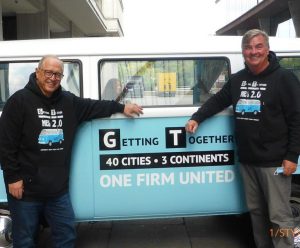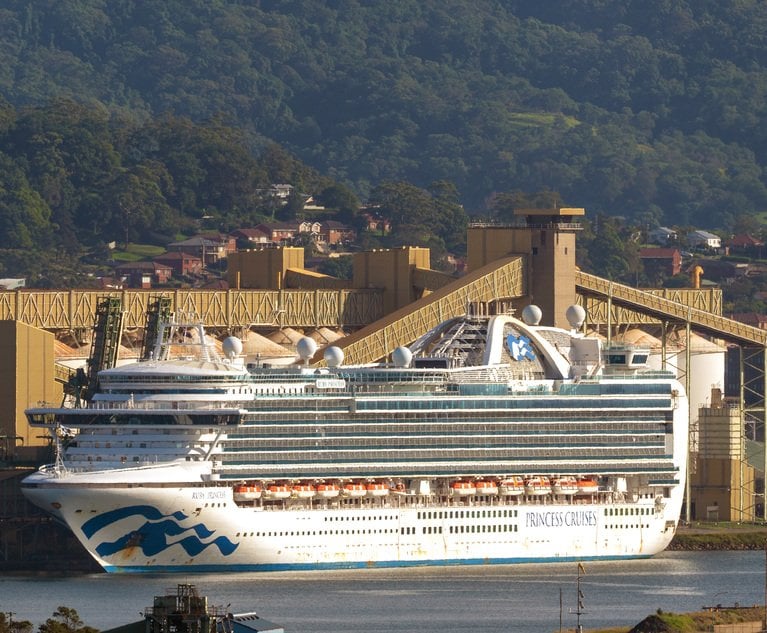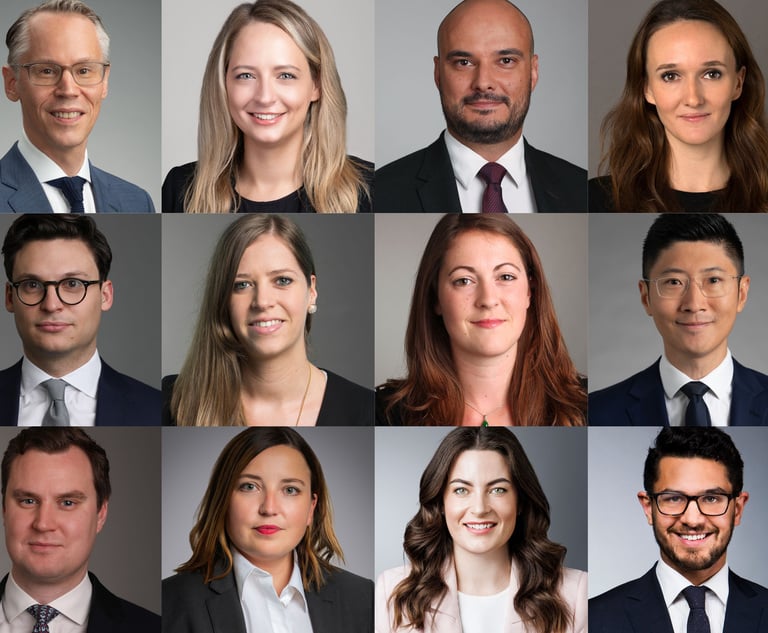When investigations relating to the Pandora Papers came to light early last week there were many corporations and individuals that felt the uncomfortable glare of scrutiny over their tax dealings in the offshore world. But in the legal industry there was really only one: Baker McKenzie.
The International Consortium of Investigative Journalists, which obtained the records, highlighted Baker McKenzie’s role in creating the modern offshore system, contending that the global firm also continues to help clients navigate this shadow economy. The firm was mentioned in more than 7,500 documents, far more than any other major law firm.
The implications for the firm are complex. As reporter Dan Packel explains in a great piece, Baker McKenzie has been named as the industry’s best-known (though not necessarily best regarded) name in the Acritas Global Elite Law Firm Brand Index for 11 years running. Will this hurt the firm’s reputation, or draw yet more wealthy clients?
Baker McKenzie contests the reporting by the ICIJ and it is worth noting the firm hasn’t technically done anything wrong. Even so, the unwanted attention will reignite two important debates that are likely to increase in frequency over the coming years within law firm management teams.
First is to what extent law firms should be wary of acting for certain clients. The right to legal advice has always been a fundamental part of law but to what extent firms choose to avoid clients with questionable reputations may become a bigger topic of debate as the younger generation pushes hard for evidence of firms’ ESG and CSR efforts.
Earlier this year in Australia the chief executive of domestic firm MinterEllison questioned the firm’s decision to act for a client who had been accused of rape, which prompted internal disagreements and led to her being sacked. A subsequent feature by our Australia correspondent Christopher Niesche found some examples of firms turning down clients on ethical grounds, but in general it remains rare for firms to ever turn down mandates for such reasons.
The second debate is how aggressively firms should fight for their clients, particularly if their aims seem ethically dubious. Two years ago in the U.K., Allen & Overy became embroiled in a debate about non-disclosure agreements after acting on behalf of Harvey Weinstein. Crucial to that discussion was how appropriate it was to draw up an agreement that made even other employment lawyers wince. There is providing legal advice and there is going the extra mile for a questionable cause.
Both these issues were addressed this week in an excellent opinion piece by a professor who works at the Centre for the Study of Corruption in the U.K.
Robert Barrington argues that the reputation of law firms is changing from being a guardian of the rule of law to being ‘professional enablers’. By this he means acting on behalf of corrupt oligarchs and kleptocrats, exploiting loopholes, skirting the fringes of legality, and “setting up complex webs of shell companies to disguise identities and financial flows and litigating against journalists who may make uncomfortable allegations against their clients”.
Lawyers have three defences, he explains: access to justice; innocent until proven guilty; and equality before the law. But he also points out “these principles were designed to protect the disadvantaged and downtrodden; they are now also used to protect those who are highly corrupt”.
For firms advising in the sometimes murky world of offshore shell companies it is probably rare that a client is ever overtly criminal or that their aims are outright nefarious. So how might firms attempt to tackle such issues?
Well, in the case of Baker McKenzie, Packel notes the firm’s own code of conduct encourages its lawyers operating in scenarios that lack fixed standards to weigh questions such as: Would I be embarrassed if friends or family knew I did this? Could this cause harm to the firm or damage to its reputation? And would I be embarrassed if this were reported in a blog or news story?
Now the reports are out, there are presumably some people at the firm who do feel a bit embarrassed. And, fair or not, it may yet damage the firm’s reputation.
Big Law, Little Van
 (L-R) Greenberg Traurig executive chairman Richard Rosenbaum and CEO Brian Duffy. Courtesy photo
(L-R) Greenberg Traurig executive chairman Richard Rosenbaum and CEO Brian Duffy. Courtesy photo
Leaders of huge law firms are more associated with first class air travel. But the executive chairman and chief executive of $1.7 billion turnover, 2,171-lawyer Greenberg Traurig have developed a reputation for embarking on long road trips to visit their offices.
Earlier in the year they set off across the U.S. in an RV to meet with each of the firm’s 30 national offices. Now they’ve just done the same across Europe – this time in a 1960s Volkswagen van. They drove from Warsaw to Berlin, breaking down on the way, then carried on to London before the final leg of the journey to Milan.
The choice of a smaller van for this one was probably wise. “Good luck driving an RV around the EU,” says executive chairman Richard Rosenbaum. From personal experience I agree with him – I once ripped open the side of a camper van in the narrow streets of Chamonix in France.
In fact, although unusual, the whole exercise appears to have been a success. The aim was to connect with their offices and bring people together after more than a year of isolation. Each stop had nearly 100% attendance.
Talk about innovation.
More Partner Promotions Than Ever
 Make hay while the sun shines. The world’s largest commercial law firms are certainly taking advantage of the unprecedented market conditions to promote lawyers to partner level faster than at any rate in history.
Make hay while the sun shines. The world’s largest commercial law firms are certainly taking advantage of the unprecedented market conditions to promote lawyers to partner level faster than at any rate in history.
Late last week White & Case became the latest to announce its largest ever promotions round – 59 in total, up from 40 12 months ago – which followed on from Kirkland & Ellis’s 151 new partners at the start of the month. Goodwin Procter also unveiled a record number of partner promotions and back in April, Linklaters announced a big number too.
Even firms that have announced smaller numbers of promotions this year – including Baker McKenzie and DLA Piper – made up bumper numbers in 2020.
These numbers aren’t being skewed by any one region either. In fact, New York promotions might have slowed, and some firms have snubbed London altogether.
This really is a season of global growth.
Major Stories From Around The World
Europe
‘Performance Plus Big Salary No Longer Equals Retention’: A Q&A With De Brauw’s Managing Partner
Former BASF General Counsel Joins DLA Piper
Hogan Lovells Hires In Leader For Fledgling Dublin Office
GDPR’s Global Impact May Be More Limited Than You Think
Gibson Dunn Recruits Top European Commission Official
Swedish Firm Takes the Lead on $2.9B Volvo Cars IPO
Middle East and Africa
Magic Circle Duo Join Dentons, Reed Smith on Saudi Newcastle United Takeover
Kenya’s President Leads Tributes to Bowmans Litigator Evans Monari
HSF’s Middle East Head Jumps to Norton Rose
Asia Pacific
A Relief for Foreign Lawyers as China Shelves Anti-Sanctions Law in Hong Kong
McDermott Will & Emery Expands Further With HSF Hire in Singapore
Pinsent Masons Mourns Death of Hong Kong Head
Allens, A&O Dial Into $1.4B Australian Cellphone Tower Deal
Weil Gotshal Makes Rare Hong Kong Partner Hire From US Rival
U.K.
Mishcon to Sue UK Government Over Stranded Afghan Judges
From Law Firm to Chambers: How Management Expectations Nudged Another Associate to Change Careers
Why Sizing Up Into Bigger Markets Isn’t Always Sound Strategy
Don’t Be A Banana: GCs Complain of Inconsistent Efforts During Panel Terms
Fuel Crisis: Does Suspending UK Competition Law Set a Bad Precedent?
North America
Former Deloitte GC Takes on Unusual Recruiting Role After Retiring From Partnership
Ex-Dentons Partner Takes Over CLO Role on Interim Basis at Prominent Cannabis Company
Sullivan & Cromwell Leads Refinitiv Global League Tables So Far in Record-Breaking 2021
Leaking Talent a ‘Growing Threat’ to Law Firms
Latin America
UK High Court Nears Decision in Fight Over Venezuelan Gold
Lawyers Call for Transparency in Mexico High Court Justice Selection
NOT FOR REPRINT
© 2024 ALM Global, LLC, All Rights Reserved. Request academic re-use from www.copyright.com. All other uses, submit a request to [email protected]. For more information visit Asset & Logo Licensing.











